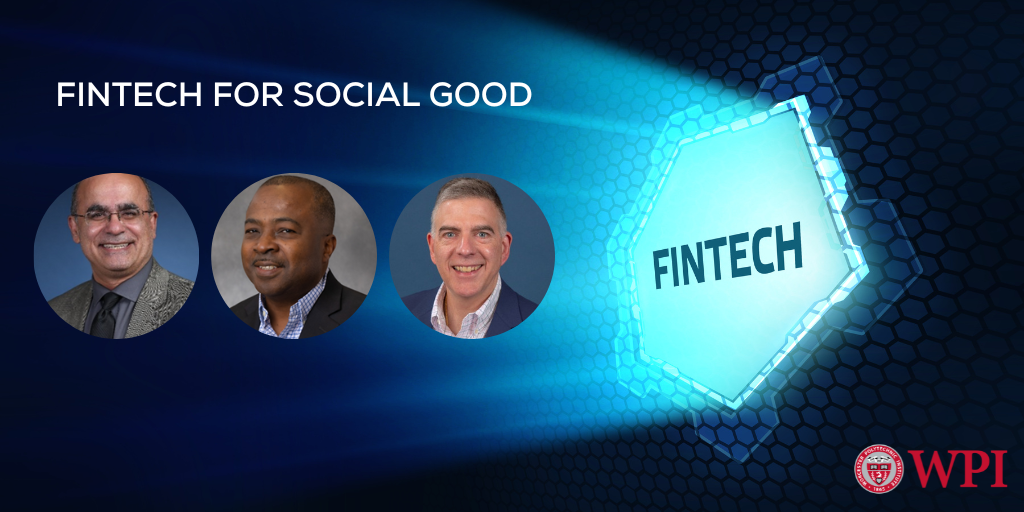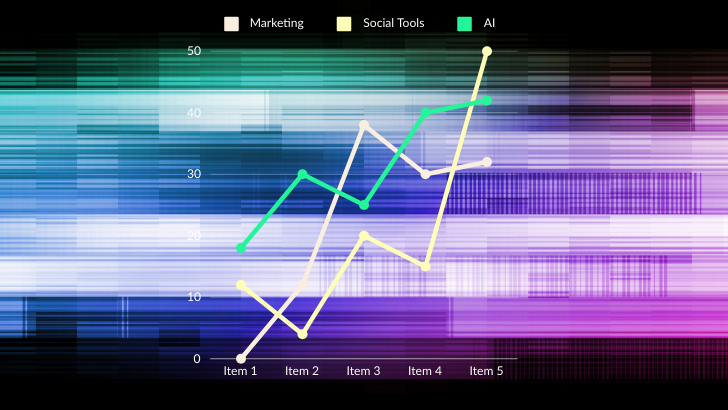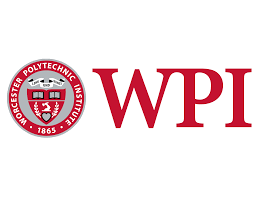 Technology for social good is a much broader context than technology for economic benefit. Social good can mean creating jobs (economic), providing support to communities, or addressing environmental concerns. These three dimensions are usually put under the umbrella of sustainability and if you are an organization under corporate social responsibility (CSR).
Technology for social good is a much broader context than technology for economic benefit. Social good can mean creating jobs (economic), providing support to communities, or addressing environmental concerns. These three dimensions are usually put under the umbrella of sustainability and if you are an organization under corporate social responsibility (CSR).
Fintech—although financially or economically focused—can offer great opportunities for social good. For instance, Fintech drives innovation in the financial industry and promotes financial inclusion by making financial services accessible to underbanked and unbanked populations. According to a report by the World Bank, there are still 1.7 billion adults globally who do not have access to basic financial services. Fintech companies are leveraging technology to provide financial services to these populations, improving financial literacy and empowering individuals to manage their finances more effectively. At Worcester Polytechnic Institute (WPI), technology is central to our mission, of which Fintech is critical.
These developments and innovations within the financial services industry, in particular, and the global economy, in general, lead naturally to the question of “What is Fintech?” It can mean many things, from traditional technologies such as ATMs or electronic banking to more advanced approaches, including the linkage to cryptocurrency and blockchain technology, artificial intelligence (AI), the internet of things (IoT), or big data analytics.
Fintech companies use technology to offer innovative financial services and products faster, more efficiently, and more customer-centric than traditional financial institutions. Fintech has transformed several aspects of finance, including payments, lending, and investing. According to a report by the consulting firm McKinsey, fintech startups received $111 billion in investment between 2010 and 2019, with investments increasing by 49% in 2019 alone. This investment highlights the growing demand for fintech services and their significant impact on the industry.
Fintech companies are transforming payments, lending, and investing by offering faster, more efficient, and more customer-centric services. For instance, digital payments have become increasingly popular, with 74% of consumers using online or mobile payments at least once a week. Fintech companies are leading the way for trends in consumer payments, with mobile payment apps such as PayPal, Venmo, and Cash App becoming household names.
Fintech is also transforming lending. Fintech lending platforms—such as LendingClub and Prosper—offer faster loan approvals, more flexible terms, and lower interest rates than traditional lenders; according to a report by Statista, the global fintech lending market is expected to grow at a CAGR of 19.9% between 2021 and 2026, reaching a market size of $460.5 billion by 2026. These platforms use alternative data sources and advanced algorithms to assess creditworthiness and make lending decisions.
Fintech also significantly impacts investing—Robinhood, Acorns, and Betterment have made investing in stocks and other assets easier. A broader range of people are included even those without access to traditional investment opportunities. Robo-advisors, which use algorithms to provide investment advice and management, are growing in popularity. The global robo-advisory market size is expected to reach $987.1 million by 2026, growing at a CAGR of 22.3% between 2021 and 2026.
Use Cases
Many use cases exist across a broad range of topics.
Currently we are cooperating with a company that captures road infrastructure data using global positioning systems and IoT—and how it can function within a blockchain ecosystem. You might not think of this as traditional Fintech—economic—considerations. It costs public money to manage these roads, using predictive analytics of this information communities and governments can determine what roads will require attention with maintenance. The data can be reliably shared with multiple levels of government for funding and management purposes. Data can also be used to inform whether disadvantaged communities are vulnerable to risks of poor infrastructure.
We have also worked with companies that perform automated sensor evaluation of ambient conditions of households. The information is gathered by sensors but also IoT devices. These devices can use a platform to make sure they are reliable and accessible by multiple stakeholders—social good is heavily dependent on relationships of multiple stakeholders. This is a social fintech application because it can save utility fees for households by helping understand concerns with heating or air conditioning inefficiencies. The sensor data can also be used to help vulnerable older and disabled individuals who may live alone and whether their living conditions are dangerous—leading to lessened social and medical costs. Reliable and visible information, along with artificial intelligence driven smart contracts across blockchain ecosystems can help manage the social, environmental, and economic costs.
We are also working on and innovating in using blockchain and fintech for the supply chain from operational, transactional, social, and sustainability dimensions. The supply chain and its impact covers multiple stakeholders and multiple communities. Supply chain finance is an important area that is heavily dependent on Fintech.
General Infrastructure of a Multistakeholder Effort
There are many great opportunities for Fintech and its supporting tools for social good. Figure 1 shows a transdisciplinary and multiple stakeholder mapping of our Worcester IoT and Smart City through Fintech, AI, and Blockchain Laboratory (FABLab for short). This is one example of a recommended multiple stakeholder program for Fintech for Social Good. Do note that we are including social enterprises and non-profit organizations in our multi-stakeholder groups. Academia, government, industry, communities, and the non-profits/non-governmental organizations should each be represented.
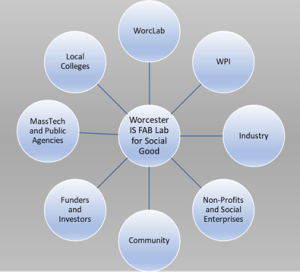
In terms of operational social goals we also rely on the larger vision and guidance from the United Nations’ Sustainable Development Goals (SDGs) and the FT4SD Gearbox of the United Nations Environmental Program (UNEP). They provide a report with additional information related to setting up an ecosystem of goals, technology, and stakeholders for effectively integrating Fintech into sustainable development.
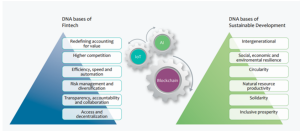
Challenges
There are many social benefits that can be accrued from Fintech and its technological and multistakeholder ecosystem. But we recognize that many challenges remain. We identify four major challenges that currently exist.
Technological Limitations and Evolution—some of the current technology is under great scrutiny for a variety of reasons. One concern is that some Fintech technology like blockchain is still relatively immature and evolving as platform and ecosystem. As the technology matures, various advances and limitations will be observed.
Education, Awareness, and Culture—many potential developers and users are still unaware of the capacities of various technologies within a Fintech environment. Many investors and users are unwilling to support Fintech and supporting technologies due to various scandals (e.g. cybercurrency firms) and concerns (e.g. AI replacing human decision making). Building awareness on the social good provided by Fintech and its supporting technologies will be necessary.
Investment and Resources—there will be significant infrastructural investments that will be required. Many of these investments are occurring, but business models around the use of these technologies for social good are needed for long-term sustainability. It is not clear who and how much will be needed as the infrastructure evolves. Clear strategic planning for organizations, across organizations, and other stakeholders is needed.
Regulatory Clarity—many Fintech elements including trading and investment are relatively unregulated. This ‘wild-west’ situation does offer free market opportunities, but it also relates to a culture that can easily be viewed as unethical. Clarity and guidance is needed to even playing fields and support standards of practice that can support more socially and ethically supportive system.
Fintech Opportunities in Massachusetts
Massachusetts has an opportunity to be the Fintech capital of the world. It is home to world class Fintech Start-ups, Financial Institutions, Investors, Academia, and Students. The Mass Fintech Hub was created to accomplish this goal back in January 2020 by bringing together 20 institutions and organizations across the Massachusetts Fintech ecosystem through a joint public-private leadership partnership.
Mass Fintech Hub is a unique Fintech collaborative focused on cultivating a robust ecosystem in Massachusetts. To understand more about the Fintech focus and opportunities in Massachusetts developed through the Hub see “Now, next and beyond: Analysis of the FinTech Ecosystem in the Commonwealth of Massachusetts”.
Governor Maura Healey and Yvonne Hao, Secretary of Economic Development, are supportive of the Mass Fintech Hub and the government continuing to advance fintech, financial inclusion, innovation, sustainability, and economic growth in 2023 and beyond.
The Future
Fintech is poised to continue revolutionizing the financial industry with emerging new technologies and business models. The fintech sector is expected to continue to grow rapidly, with global fintech investments projected to reach $310 billion by 2022. One area where fintech is expected to significantly impact is digital currencies. These currencies can promote financial inclusion and reduce the financial transaction costs.
Open banking also has great potential. Open banking allows customers to share their financial data with third-party providers and to access new financial services. Open banking can reach a market of $416 billion in revenue.
Fintech has the potential to contribute to social good by promoting financial inclusion and offering financial services to underserved populations. Financial inclusion is essential for reducing poverty, promoting economic growth, and achieving the United Nations Sustainable Development Goals (SDGs). Fintech companies, such as mobile banking apps and digital wallets, are developing solutions to address financial inclusion. These services enable individuals in remote and underserved areas to access financial services, making sending and receiving payments easier, saving money, and accessing credit. The number of adults with a bank account increased from 51% in 2011 to 76% in 2021, partly due to the growth of fintech services.
We should all be poised in the Fintech community in Massachusetts to understand, build advantages, and build to social good.



